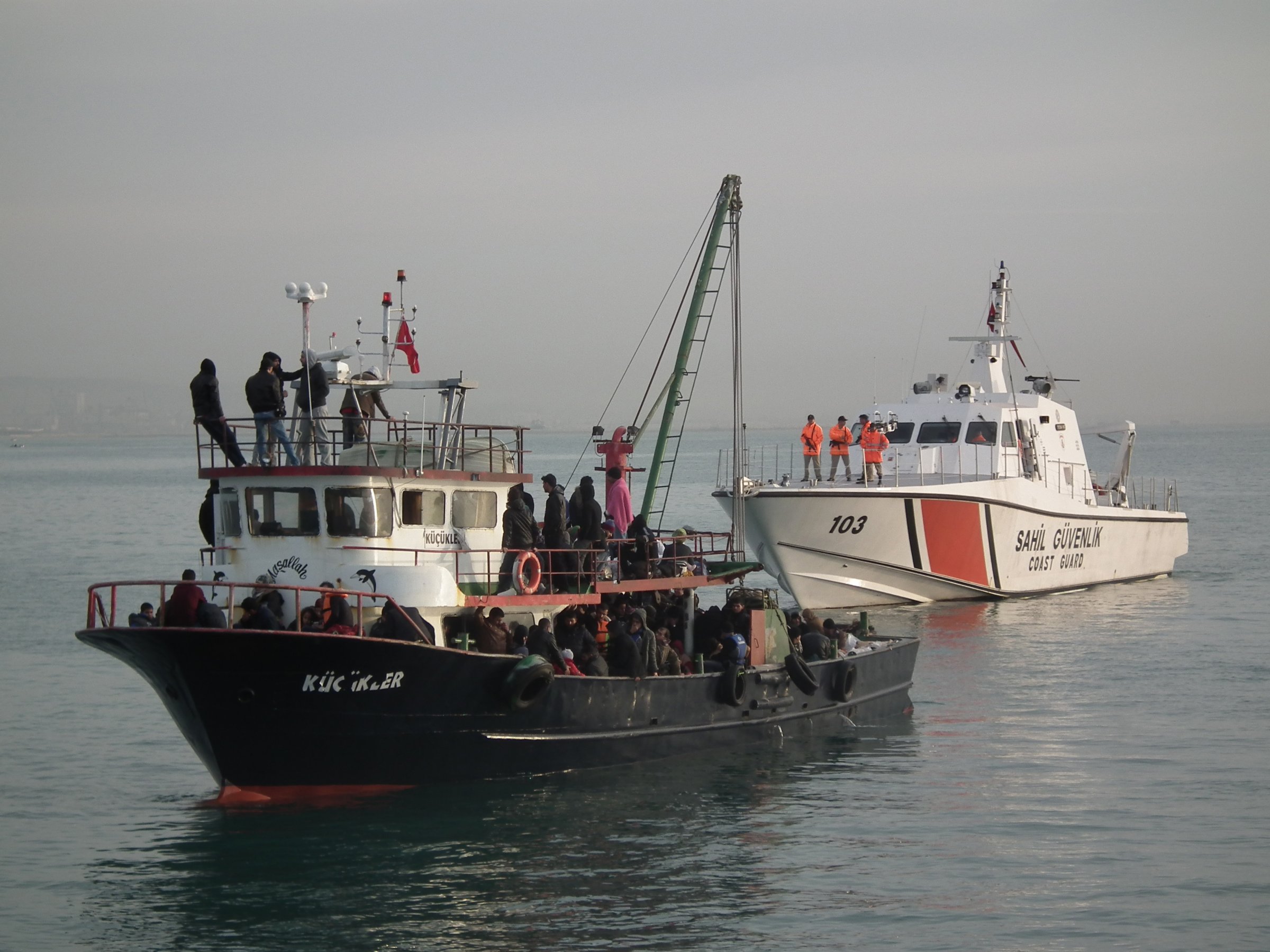
At first glance, there appears to be little in common between U.S. multi-millionaire Christopher Catrambone and the refugees risking death to cross the Mediterranean Sea. The businessman’s family live in comfort in Malta and take holidays on luxury yachts; the refugees have left their homes and they sail on dilapidated boats.
But rewind a few generations and it was Catrambone’s relatives making sea journeys from Italy and Ireland to seek a better life in the United States. Then when Hurricane Katrina struck Louisiana in 2005 and destroyed Catrambone’s home, he fled the devastation and relocated to Europe. “I myself was a displaced person,” he says, “a Katrina refugee.”
In the summer of 2014, Catrambone and his wife Regina channelled that empathy – and $7.5m of the family’s personal wealth – into an extraordinary mission to launch the world’s first private search and rescue operation. The aim of the Migrant Offshore Aid Station (MOAS) was to locate the flimsy vessels overloaded with men, woman and children trying to reach sanctuary in Europe, and save the lives of the passengers if they were in danger.
“We’re not here to save the world, we’re here to help people who are in desperate need,” says Catrambone, whose fortune comes from a business offering services to companies in conflict zones. “We leveraged nearly 50% of our savings on this project because it was that important to us. ”Now they are appealing for the public’s help to keep the operation going. Global conflicts have forced record numbers of people on perilous voyages to Europe, but rich nations have scaled back operations to save them – a situation Catrambone finds astonishing. “We’re talking about our own loss of human dignity as a society,” he says. “We ignore people dying at sea – you cannot ignore that.”
Catrambone’s Phoenix I set sail on the Mediterranean on August 25th, with the 40-meter ship carrying two remote-piloted aircraft, two inflatable boats and a crew of technical and medical experts. During their 60 days in international waters, MOAS assisted nearly 3,000 people in jeopardy at sea. While an impressive figure, that’s still just a small proportion of the 207,000 people the U.N. refugee agency estimates set sail on clandestine voyages in the Mediterranean this year. That figure dwarfs the previous record of 70,000 people who attempted the voyage in 2011, after the Arab Spring sent the first wave of asylum-seekers towards Europe.
Now, the conflict in Syria has created a refugee community of three million people, many who want to find a more stable future outside the overcrowded camps in Turkey, Lebanon and Syria. They join the tens of thousands of economic migrants trying to escape poverty, and other men, women and children seeking asylum from conflict and persecution in countries like Iraq, Somalia and Eritrea. Most leave from Libya, with human traffickers arranging passage on ramshackle boats. It is an extraordinary risk for families: this year, the U.N. estimates that 3,419 migrants died in Mediterranean – that is approximately one out of every 60 people who attempt the journey.
Catrambone has personal experience of the world’s war zones: his company, Tangiers Group, offers insurance, medical services and security analysis for firms working in high-risk environments. The company is based in Malta, which Catrambone chose as home after leaving the US because of its favorable business climate and proximity to his wife’s family in Italy.
Migration is a divisive issue in most European countries and politicians are wary of doing anything to encourage immigration even if it means leaving many to drown as they try to get to Europe. Italy launched its ‘Mare Nostrum’ search and rescue operation in 2013 after a migrant boat sunk near the island of Lampedusa, killing more than 300 people. But the Italian government stopped the mission in October, in part due to a lack of support from other European nations. Now a limited E.U. mission called Triton has taken its place, patrolling a smaller area and operating on a third of Mare Nostrum’s budget.
Catrambone wonders if political concerns have also stopped private donors from rallying to his cause. He hoped to run the first 2014 summer mission using his and his wife’s wealth and then seek private donations to cover the $490,000-a-month running costs and launch again in March 2015 when calmer seas tempt migrants to cross the sea to Europe. But appeals to foundations and companies have proved unsuccessful, so Christopher and Regina have launched a crowd-funding effort, raising around $42,000 so far.
Money has come from small donors rather than Catrambone’s fellow millionaires, whose luxury yachts he sees anchored in Malta’s Grand Harbour. “Their daily cost to sit at that marina and to run their crew and their operation would cover us for an entire month,” he says.
Catrambone says they will keep trying to raise money until March but if they don’t meet their target they will scale back their operation to a level they can afford. If they stop using the drones, they could half their costs, he says. Many more thousands of migrants are expected to attempt to cross the Mediterranean Sea in 2015 but there will be far fewer rescuers to help them if their overcrowded and worn-out boats cannot manage the journey.
More Must-Reads from TIME
- Cybersecurity Experts Are Sounding the Alarm on DOGE
- Meet the 2025 Women of the Year
- The Harsh Truth About Disability Inclusion
- Why Do More Young Adults Have Cancer?
- Colman Domingo Leads With Radical Love
- How to Get Better at Doing Things Alone
- Michelle Zauner Stares Down the Darkness
Contact us at letters@time.com